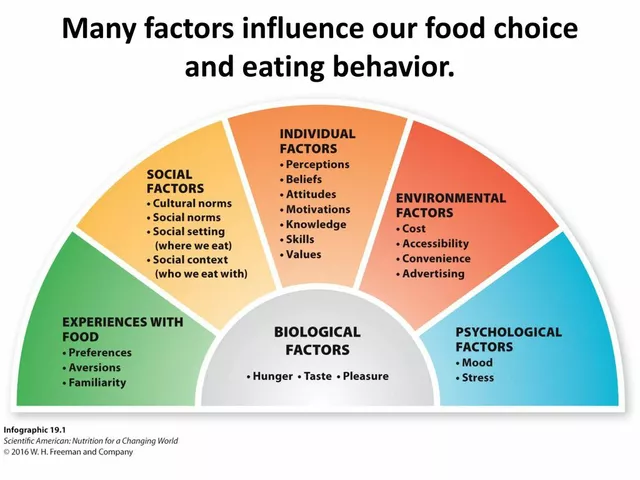Minnesota 'Targeted Political Violence': Melissa Hortman Killed, Sen. John Hoffman Wounded

A coordinated attack shocks Minnesota
Two homes, the same night, and a single through-line: a deadly plot aimed at elected officials. Early Saturday, June 14, Minnesota state representative Melissa Hortman and her husband, Mark, were fatally shot inside their Brooklyn Park home. Around the same time in nearby Champlin, state Sen. John Hoffman and his wife, Yvette, were shot and rushed to surgery. Both are expected to survive, according to officials.
Governor Tim Walz addressed the state with unflinching language, calling the shootings an act of targeted political violence and describing the attack as a politically motivated assassination. He remembered Hortman as a leader who served with grace, humor, and an unwavering sense of service. Hortman, House Speaker Emerita and head of the DFL caucus, had been a presence at the Capitol since first winning office in 2004.
Police say the suspect posed as an officer and drove a vehicle made to look like a police car. Responding to the shooting at the Hoffmans' home, officers then went to check on the Hortmans. As they approached, a man opened fire on them and fled, triggering what authorities later described as the most extensive manhunt in Minnesota history.
The killings cut through the usual partisan noise. Democrats and Republicans condemned the attacks in blunt terms, framing them not as isolated crimes but as an assault on democratic life. Former Congresswoman Gabrielle Giffords, who survived a 2011 assassination attempt, said she was horrified and heartbroken, calling the events an attack on American democracy itself.
For colleagues, the loss felt deeply personal. The House DFL Caucus called Hortman an incredible leader who dedicated her life to public service, while Walz urged Minnesotans to stand together against political violence and promised that those responsible would be held to account.
Hoffman, first elected to the Senate in 2012 and head of a consulting firm, has built his career around service in his district. Friends say he and Yvette are known in their community as steady presences—approachable, collaborative, and involved. Hospital officials did not release medical details but confirmed both underwent surgery and are expected to recover.
Suspect captured; charges point to motive and premeditation
Authorities identified the suspect as 57-year-old Vance Luther Boelter of Sleepy Eye, Minnesota. He was arrested on the evening of June 15 in Green Isle after a sweeping multi-agency search across the metro and surrounding areas. Investigators say he fled after exchanging gunfire with responding officers and spent nearly a day on the run before being taken into custody without further injuries to law enforcement.
Federal charging documents describe Boelter as acting with the intent to kill, injure, harass, and intimidate Minnesota legislators. Inside his vehicle, investigators report finding a manifesto and a list naming nearly 70 people—abortion rights advocates, Democratic politicians, and abortion providers among them—suggesting a methodical plan to target people for their political views and work.
Boelter faces a slate of federal counts, including murder, stalking, and firearms offenses, and separate state charges of two counts of second-degree murder and two counts of attempted second-degree murder. Hennepin County Attorney Mary Moriarty said she will seek first-degree murder charges before a grand jury, a pathway commonly used in Minnesota for premeditated killings.
First-degree murder in Minnesota requires proof of premeditation and carries a mandatory life sentence upon conviction. Moving from second-degree to first-degree typically involves additional investigative work—digital forensics, witness interviews, ballistic analysis, and timelines—to demonstrate planning and intent beyond the immediate act. Prosecutors will likely lean on the manifesto, the alleged impersonation of law enforcement, and the coordinated attacks as evidence of premeditation.
The impersonation detail alarms law enforcement for another reason: it complicates the split-second judgments regular officers and civilians must make at a front door or on a roadside. Agencies often advise residents to call 911 to verify if they have doubts about a purported officer at their home. In recent years, police and prosecutors nationwide have reported an increase in impersonation cases tied to broader criminal schemes.
The fallout extends well beyond the court docket. State and federal security officials are reviewing protocols for protecting lawmakers, whose daily routines rarely come with formal security details. At statehouses around the country, threats against elected officials have surged in recent years, leading to more safety training, home security recommendations, and quiet changes in how public events are staffed. Expect Minnesota to accelerate similar measures—more coordinated threat assessments, faster information sharing between agencies, and guidance for lawmakers and their families on managing risks at home.
Personal shock is also rippling through the suspect's family. Through an attorney, Boelter's wife, Jenny Lynne Boelter, said she has filed for divorce and called the shootings a betrayal of their Christian faith. Her statement described the family as shocked, heartbroken, and blindsided.
Community grief is raw. Neighbors in Brooklyn Park and Champlin woke to blocked streets and helicopters overhead, then learned what happened inside two homes they pass every day. Former aides and advocates who worked with Hortman recalled her command of process and her push to translate committee-room debates into practical laws. Her colleagues often said she was relentless about negotiation, but also quick to share a joke off the record.
The legislative calendar now pauses in place. Leadership will have to navigate the business of governing while honoring a colleague and addressing the immediate security worries of rank-and-file members. Expect memorials and tributes to form the first public steps, followed by policy questions that are harder to answer—what should change about the way lawmakers live and work under threat?
As the case moves forward, here’s what to watch next:
- Initial court appearances: Boelter is expected to appear in federal court on the federal counts, with separate state proceedings in Hennepin County. Judges will consider detention, discovery timelines, and scheduling.
- Grand jury action: Prosecutors have said they will seek first-degree murder charges. That process, done in secret, will test the depth of evidence on planning and motive.
- Evidence development: Investigators will mine digital devices, vehicle data, and any paper trail associated with the manifesto and target list, looking for connections to the shootings and others on the list.
- Security upgrades: The state will likely roll out immediate steps for lawmakers’ homes and events, including safety checklists, contact protocols, and coordination with local police.
Political violence thrives on spectacle and fear. The quick arrest and clear public statements from state leaders aim to blunt that effect—naming the crime for what it is and separating the act from the public’s right to disagree, protest, and argue about policy in the open. For Minnesotans who knew the victims—or only knew their names from headlines—this week is about mourning, recovery, and the long work of making sure democratic life can carry on safely.
- September 11, 2025
- Cassius Windham
- 0 Comments
- Permalink




